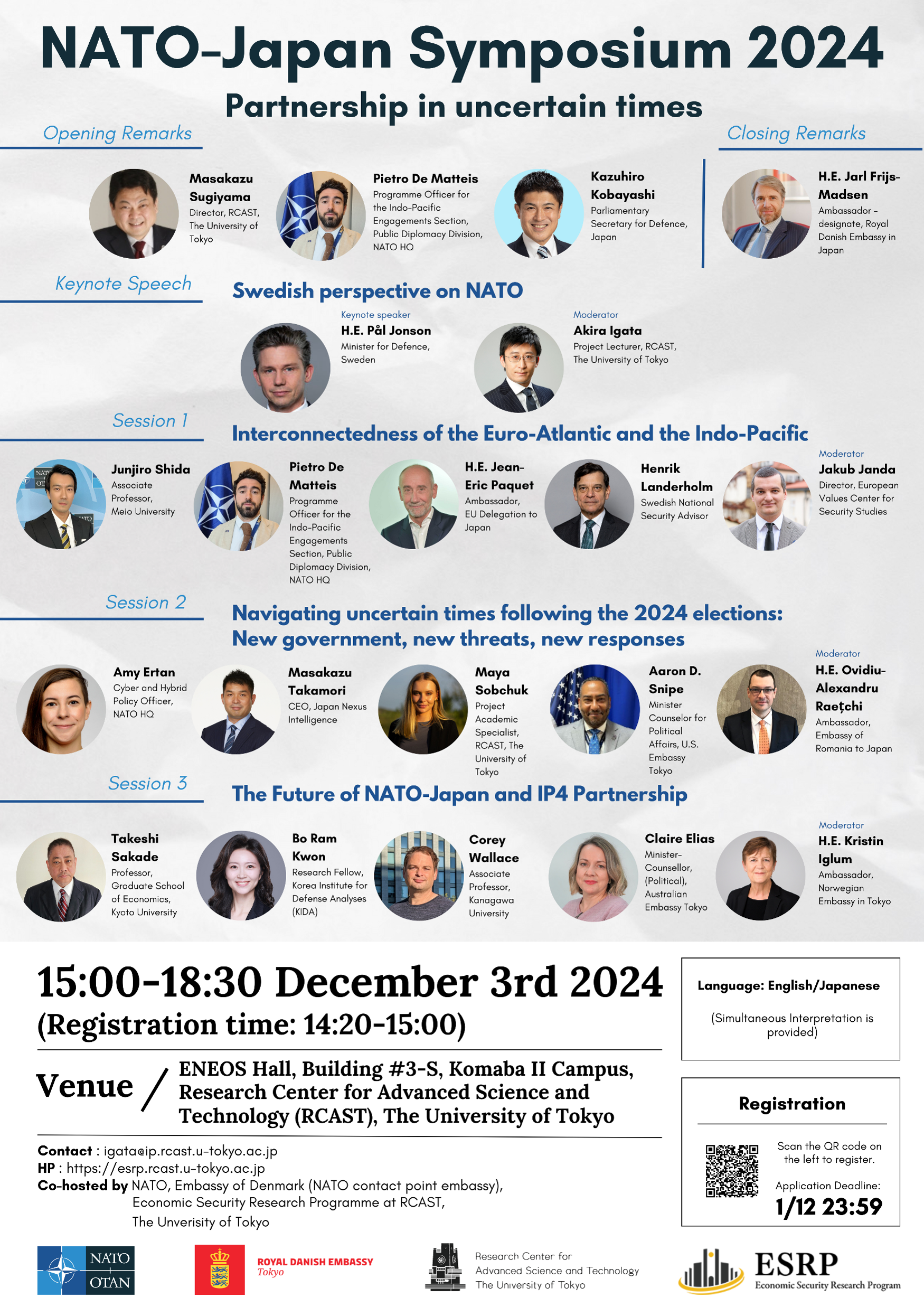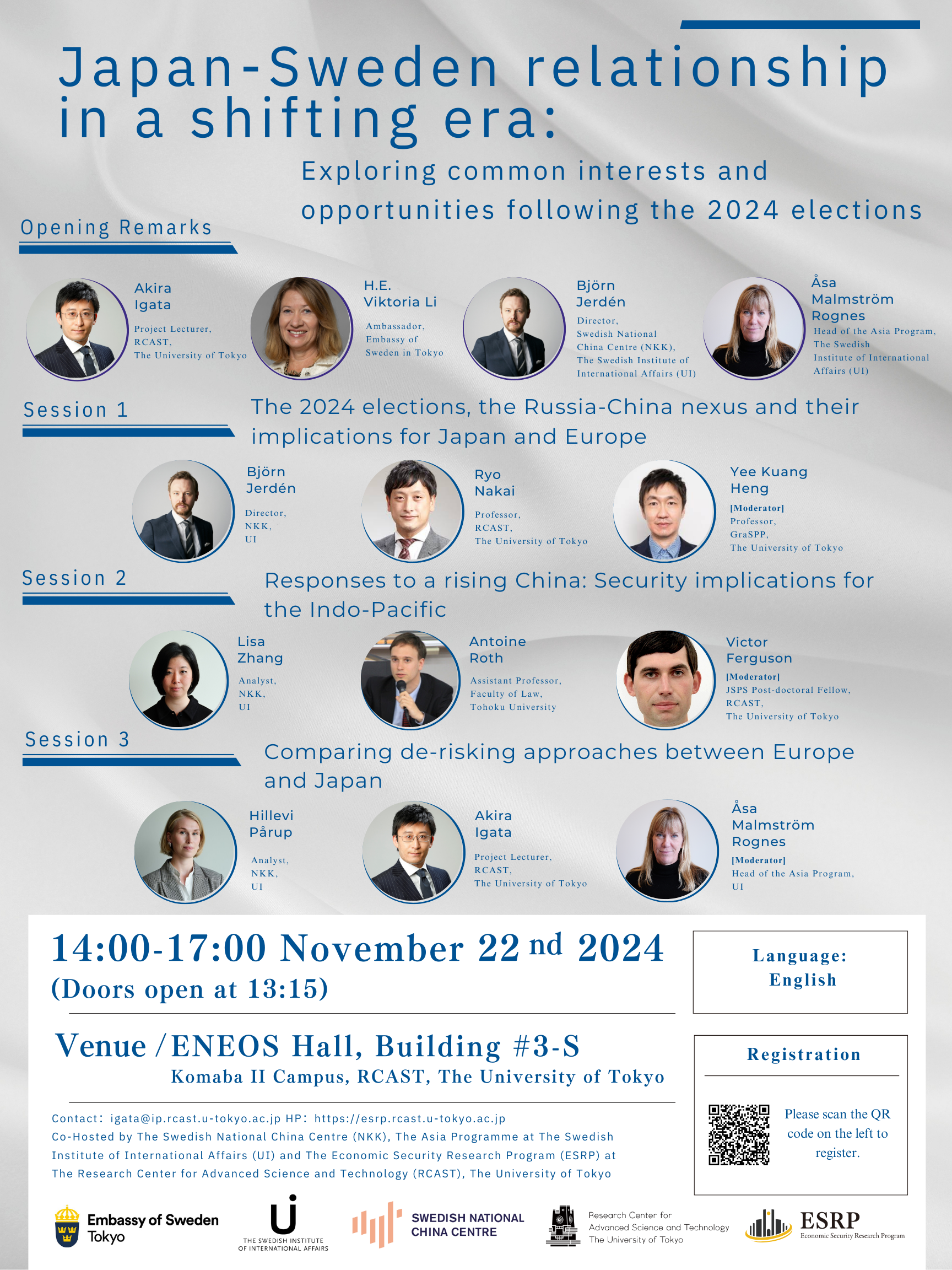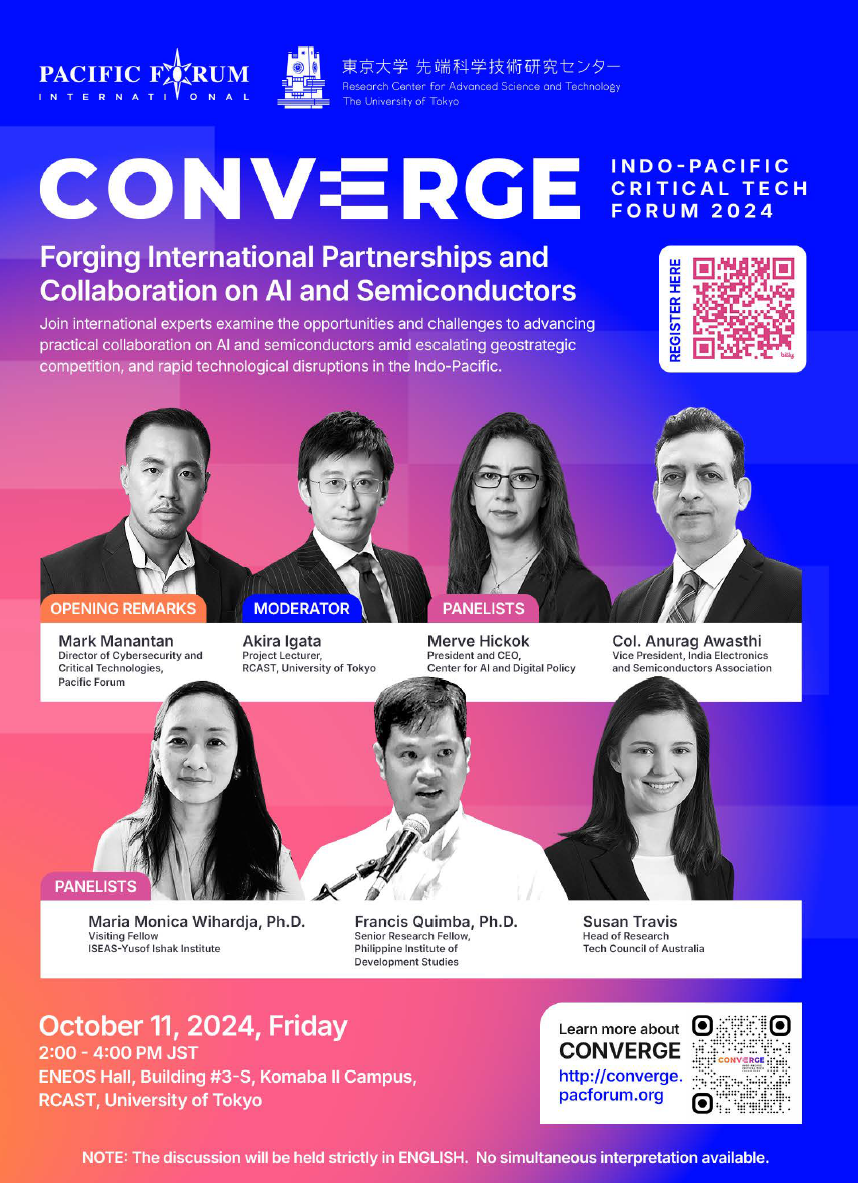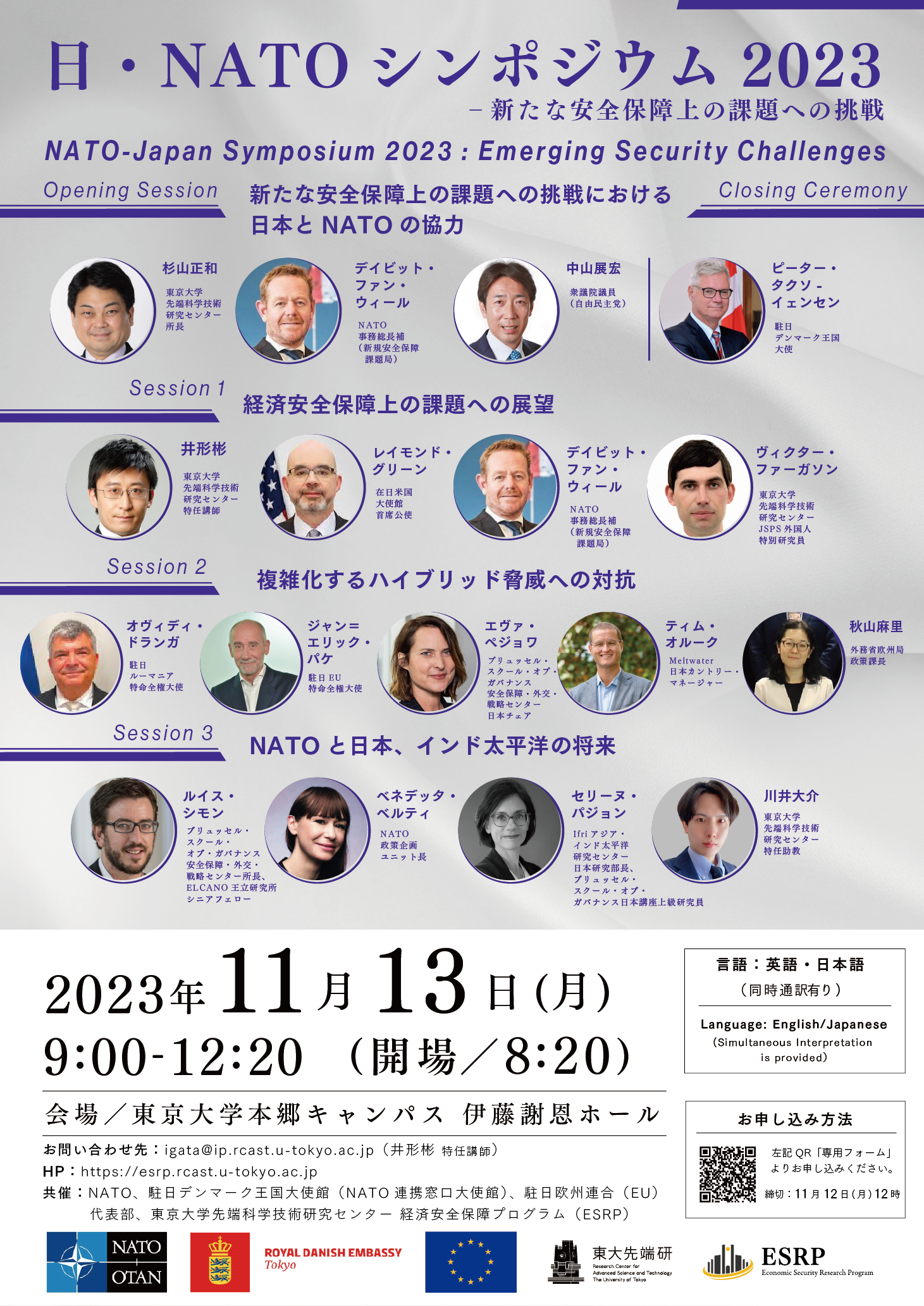Events
NATO-Japan Symposium 2023: Emerging Security Challenges
The world is facing upheaval due to global challenges, including China's military build-up, Russia's aggression in Ukraine, Middle East tensions, and North Korea's nuclear program.
Japan, along with Australia, South Korea, and New Zealand, participated in NATO's summit, highlighting close cooperation between NATO and the Indo Pacific. The Individually Tailored Partnership Programme for 2023-2026 strengthens collaboration between NATO and Japan to promote international peace, stability, and the rules-based international order. This partnership focuses on addressing security challenges like economic security, cyber-attacks, emerging technologies, and building resilient societies to protect populations and territories.
The Japan-EU Economic Partnership Agreement was entered into in 2019 to enhance our economic cooperation as a model of economic order in the 21st century based on free and fair rule. We also launched a strategic dialogue on security issues and laid the groundwork for closer cooperation in the areas of economic security, in particular on emerging technologies, supply chain diversification and anti-coercion measures.
Against this backdrop, Japan-EU-NATO Symposium 2023 will take place on 11/13, co-hosted by NATO, EU, Royal Danish Embassy and Economic Security Research Program (ESRP) at Research Center for Advanced Science and Technology (RCAST). In this event, we will discuss issues related to Economic Security, Cognitive Warfare, and partnership between Japan and NATO.
Overview of the event
| Date | Date: November 13th 2023 from 9:00-12:20 (Door opens at 8:20) |
|---|---|
| Place | Ito Hall, Hongo Campus, The University of Tokyo 7-3-1, Hongo, Bunkyou-ku, Tokyo 113-0033 Please Check here. |
| Capacity | 396 people |
| Fee | Free |
| Speakers | Opening session: NATO-Japan collaboration on emerging security challenges Opening welcome - Masakazu Sugiyama, Director, Research Center for Advanced Science and Technology (RCAST), The University of Tokyo Keynote speech 1 - H.E. Mr. David Van Weel, NATO Assistant Secretary General for Emerging Security Challenges Keynote speech 2 - Norihiro Nakayama, Member of the House of Representatives Session 1: Perspectives on economic security challenges Moderated by H.E.Jean-Eric Paquet, Ambassador of the European Union Japanese perspective - Akira Igata, Project Lecturer, Economic Security Research Program, RCAST, The University of Tokyo American perspective - Raymond Greene, Deputy Chief of Mission, U.S. Embassy in Japan NATO perspective - H.E. Mr. David Van Weel, NATO Assistant Secretary General for Emerging Security Challenges Other Indo-Pacific partners’ perspective (Australia, New Zealand, South Korea): - Victor Ferguson (JSPS Postdoctoral Research Fellow, Research Center for Advanced Science and Technology, The University of Tokyo) Session 2: Combatting hybrid challenges Moderated by H. E. Mr. Peter Taksøe-Jensen, Ambassador, Royal Danish Embassy in Japan How Japan is countering disinformation - Hideaki Ishii, Director, Public Diplomacy Strategy Division, Ministry of Foreign Affairs of Japan European views on hybrid challenges - H.E.Jean-Eric Paquet, Ambassador of the European Union Hybrid challenges in the maritime domain Eva Pejsova, Japan Chair, Centre for Security, Diplomacy and Strategy, Brussels School of Governance and Associate Fellow at Fondation pour la Recherche Strategie, Paris Public-private partnership in combating hybrid challenges - Tim O'Rourke, Country Manager, Japan, Meltwater Session 3: The future for the NATO, Japan, and the Indo-Pacific partnership Moderated by Akira Igata (The University of Tokyo) NATO’s geopolitical outlook and shifts in security environment - Dr. Benedetta Berti, head of NATO Policy Planning Unit NATO’s Indo-Pacific Agenda - Dr. Luis Simon, Director, Centre for Security, Diplomacy And Strategy, Brussels School of Governance and Senior fellow Royal Institute ELCANO French perspective on NATO-Japan partnership - Céline Pajon, Head of Japan Research, Center for Asian and Indo-Pacific Studies, Ifri and Senior fellow, Senior Researcher, Japan Chair, Brussels School of Governance Japanese perspective on NATO-Japan partnership - Daisuke Kawai, Project Assistant Professor, Economic Security Research Program, RCAST, The University of Tokyo Closing remarks - H.E. Mr. Peter Taksøe-Jensen, Ambassador, Royal Danish Embassy in Japan |
| Language | In English and partly in Japanese (We have simultaneous interpretation available for attendees who prefer it.) |
| Registration | Please fill in this form. |
| Details | A simultaneous broadcast is scheduled on YouTube at here. Please note that the broadcast may be abruptly canceled depending on the situation on the day. Your understanding in advance is appreciated. |

Economic Security Research Program (ESRP) at the Research Center for Advanced Science and Technology (RCAST) at The University of Tokyo, along with the NATO HQ and the Royal Danish Embassy Tokyo (NATO Contact Point Embassy), will co-host the "NATO-Japan Symposium 2024: Partnership in Uncertain Times."
Following the "NATO-Japan Symposium 2023: Emerging Security Challenges," we will once again convene experts from around the world to RCAST, The University of Tokyo to discuss how partner countries can collaborate with each other in the era where uncertainty reigns.
This year, we have the privilege of welcoming the Swedish Defense Minister to make a keynote speech. This will be followed by a discussion among NATO HQ experts, numerous Ambassadors (EU, Norway, Denmark, Romania), and Japan's Parliamentary Vice Minister of Defense, among others.
We will focus on 3 topics during the discussions. (1) Interconnectedness of the Euro-Atlantic and the Indo-Pacific; (2) Navigating uncertain times following the 2024 elections; New government, new threats, new responses; and (3) The Future of NATO-Japan and IP4 Partnership.

The Economic Security Research Program (ESRP) at The Research Center for Advanced Science and Technology (RCAST), The University of Tokyo and The Swedish National China Centre (NKK) and The Asia Programme at The Swedish Institute of International Affairs (UI) will co-host a symposium, with a backing from the Embassy of Sweden in Tokyo, titled “Japan-Sweden Relationship in a shifting era: Exploring common interests and opportunities following the 2024 elections.”
This symposium will bring together Swedish and Japanese experts on security and economic issues to discuss: (1) How Sweden and Japan perceives the impact of various elections that have taken place in 2024 and the increasing coordination between China and Russia; (2) How Sweden and Japan are responding to the rise of China; and (3) Comparative approaches towards de-risking between Europe and Japan

The Economic Security Research Program (ESRP) at RCAST, The University of Tokyo and Pacific Forum will co-host a symposium titled "CONVERGE: Forging International Partnerships and Collaboration on AI and Semiconductors" from 14:00-16:00 on Oct.11.
This symposium will bring together experts from 5 countries in the Indo-Pacific - U.S., Australia, India, Singapore, and the Philippines - to discuss how this region can collaborate better on issues related to AI and semiconductors.
We will share some of the outcomes from the closed discussions, where we examined the challenges and opportunities facing different CET actors operating in the Indo-Pacific related to AI and semiconductors. This will allow for the identification of the means to identify best practices for enhancing Indo-Pacific tech cooperation while building trust between existing stakeholders.
The language of this symposium will be in English. Please note that there is NO simultaneous interpretation. Pre-registration required.

Taiwan has become a global powerhouse in cutting-edge semiconductor manufacturing and a driving force in the next generation of AI revolution. However, due to its dynamic economic relationship and tense military relations with China, the high-tech island nation has found itself at the forefront of potential global conflict zones since the escalation of the techno-geopolitical era of comprehensive US-China competition.
As economic security becomes an increasingly important element of national security, Taiwan’s experience offers important insights into how the People’s Republic of China (PRC) has advanced its technological power. At the event, Dr. Jeremy Chih Cheng Chang, a research fellow and Director of Semiconductor Policy at DEST, a new launched public think tank in Taiwan, will explain the evolution of Taiwan's economic security framework, exploring historical perspectives and regulatory insights, and discussed lessons learned for international allies.
Mailing List
The earliest information about the latest event will be delivered.
Please register from the button below.


